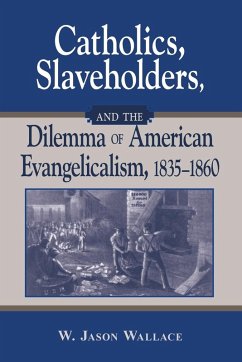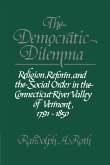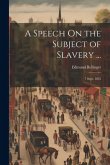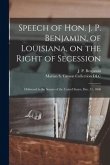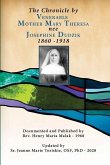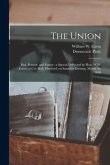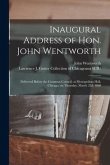Although slaveholding southerners and Catholics in general had little in common, both groups found themselves relentlessly attacked in the northern evangelical press during the decades leading up to the Civil War. In Catholics, Slaveholders, and the Dilemma of American Evangelicalism, 1835-1860, W. Jason Wallace skillfully examines sermons, books, newspaper articles, and private correspondence of members of three antebellum groups--northern evangelicals, southern evangelicals, and Catholics--and argues that the divisions among them stemmed, at least in part, from disagreements over the role that religious convictions played in a free society. Focusing on journals such as The Downfall of Babylon, Zion's Herald, The New York Evangelist, and The New York Observer, Wallace argues that northern evangelicals constructed a national narrative after their own image and, in the course of vigorous promotion of that narrative, attacked what they believed was the immoral authoritarianism of both the Catholic and the slaveholder. He then examines the response of both southerners and Catholics to northern evangelical attacks. As Wallace shows, leading Catholic intellectuals interpreted and defended the contributions made by the Catholic Church to American principles such as religious liberty and the separation of church and state. Proslavery southern evangelicals, while sharing with evangelicals in the North the belief that the United States was founded on Protestant values, rejected the attempts by northern evangelicals to associate Christianity with social egalitarianism and argued that northern evangelicals compromised both the Bible and Protestantism to fit their ideal of a good society. The American evangelical dilemma arose from conflicting opinions over what it meant to be an American and a Christian. "Despite their obvious differences, antebellum American Catholics and pro-slavery Southern evangelicals had one feature in common: their powerful aversion to Northern evangelicals' transformation of the Christian faith into a crusading gospel of 'progress.' By exploring their respective critiques of Northern evangelical theology, with its overconfidence in individual and social perfectibility and its tendency to identify Christianity with American nationalism, W. Jason Wallace provides us with keen insight into American evangelicalism's characteristic dilemmas, many of which still bedevil it today." --Wilfred M. McClay, University of Tennessee at Chattanooga "Jason Wallace makes a clear argument of why Northern evangelical Protestants were consistent in opposing both slavery and Catholicism. Although the general relationship between abolitionists and nativists has been well known, Wallace not only proves the connection but also shows the theological basis for that connection. This book will be of interest to the academic specialist and to a wider audience interested in American religious history." --Gerald Fogarty, S.J., University of Virginia "For those who like their history complicated, Jason Wallace's book should be at the top of their reading list. In this book Wallace takes the familiar dispute between abolitionist and pro-slavery evangelical Protestants and throws in Roman Catholicism, not only as an intriguing voice in the debates about slavery but also as a related subject of debate, with Roman Catholicism representing to evangelicals another form of slavery. The result is an episode that opens the question of slavery to the larger political and economic context of European and American debates about freedom and tyranny after the eighteenth century revolutions. Wallace argues convincingly that these disputes produced no winners, and suggests just as plausibly that the reputed winners--the northern evangelicals--lost as much as they won." --D. G. Hart, Westminster Seminary California
Hinweis: Dieser Artikel kann nur an eine deutsche Lieferadresse ausgeliefert werden.
Hinweis: Dieser Artikel kann nur an eine deutsche Lieferadresse ausgeliefert werden.

